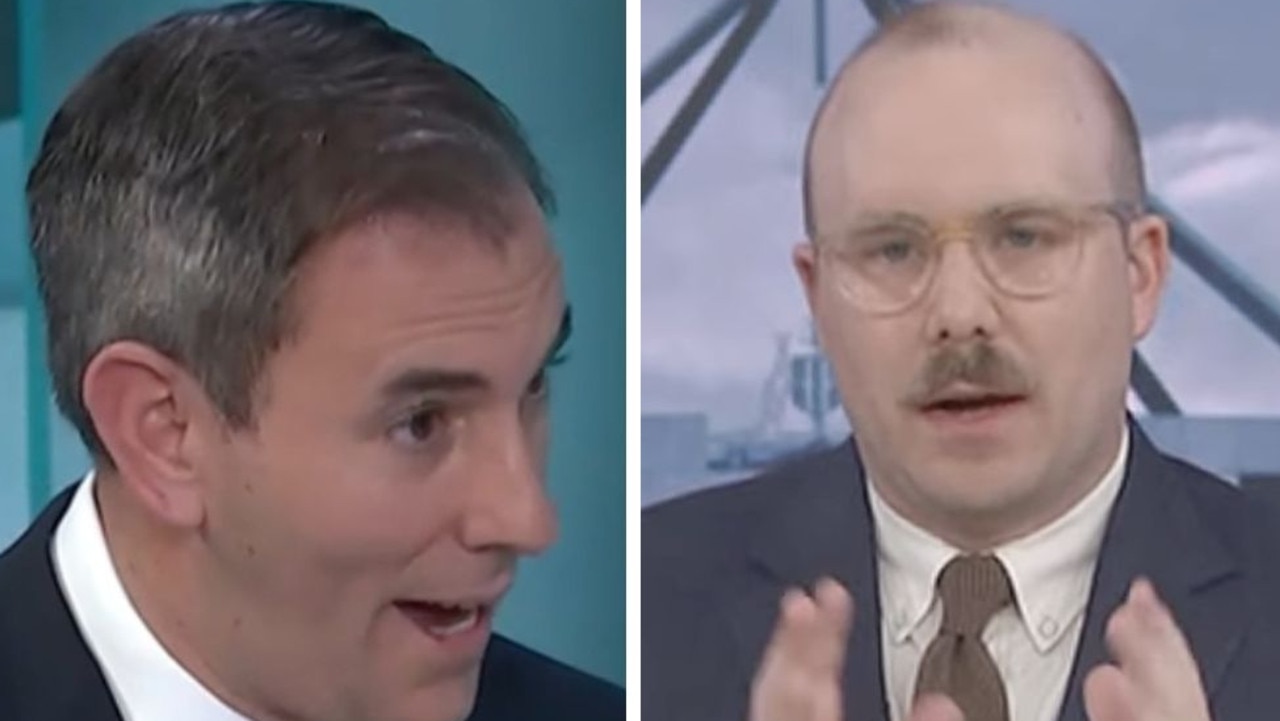There are concerns Jim Chalmers’ budget could spark an interest rate rise, with billions of dollars in stimulus set to be shot into the economy through tax cuts and and other measures.
Professor of Economics Steven Hamilton says his eyes “popped out of his head” when he saw the budget papers on Tuesday morning, particularly at the government’s decision to allocate $10 billion to new spending.
Dr Chalmers announced that every Australian household will get a $300 energy bill rebate (estimated to cost $3.5 billion) regardless of income.
He will also raise rent assistance by 10 per cent will inject an extra $1.9 billion into households.
His revamped stage three tax cuts are thought to inject about $25 billion into household budgets in 2024-25.
The RBA has raised interest rates 13 points to combat runaway inflation and although they have held rates for the past few months, Michelle Bullock has said she won’t hestiate to hike them again.
Dr Chalmers claims his budget will tackle inflation, forecasting inflation to be 3.25 per cent in 2024-25.
However Professor Hamilton, who works at The George Washington University, in Washington has poured water on this claim, saying there is a “real risk” Dr Chalmers third budget will result in rise in interest rates.
“If you have unavoidable spending, you need to make room for it,” he said.
“The Government has delivered a budget and the goal of it is to give an envelope and allocate it to the things you prioritise. I don’t see that.
“We have a $28 billion deficit in the coming financial year and $20 billion of that comes from new decisions in the last two budgets. Make of that what you will.”
He said that adding so much stimulus into the economy via tax cuts and refunds could result in rate hikes.
“The rule of thumb a lot of people use is that every roughly $7 billion in defecit generates a quarter point increase in interest rates.
“That’s 2 per cent or 3 per cent interest rate increases. And you look at the stage 3 tax cuts, that’s $44 billion of stimulus to the economy.
“That’s a 1.5 per cent interest rate increase.
“Look, in a time like this when the Reserve Bank is right on the edge, where they’re right on the edge of raising rates, to be pushing this much stimulus into the economy, I think that’s a real risk.”
In a column for the Australian Financial Review, Hamilton described the 2024 budget as “the most irresponsible in recent memory”.
“The fiscal stance would be eye-opening in ordinary times. During an inflation crisis with the Reserve Bank on the precipice of further rate increases, it’s downright reckless,” he wrote.
“Back at the October 2022 budget, when the government was in its infancy, I was assured by people in government that, despite the absence of any real fiscal strategy, ‘Jim knows what he needs to do’. Well, this budget confirms either that he has no idea or doesn’t care.
“Ahead of the budget, the government set itself a simple standard against which to be judged in approaching the budget: not to make the Reserve Bank’s job harder in getting inflation under control. Having seen the results, Michele Bullock may just choke on her cornflakes on Wednesday morning.
“Over the past two budgets, the government’s decisions increased the budget deficit in the coming 2024-25 financial year by $10 billion. Now, in this 2024-25 budget, the government has added another $10 billion to that tab.”
Chalmers also came under fire for handing out $300 energy bill relief to every single Australian household, without means testing, which prompted pundits to question exactly how that was fair, given many families are living below the poverty line while others sit in multimillion dollar mansions.
On the ABC’s 7.30 program, host Sarah Ferguson repeatedly challenged Dr Chalmers on whether this was a good idea.
Denying he was “spraying around cash”, Dr Chalmers said the impact of cost of living pressure was hurting everyone.
But the ABC host wasn’t having a bar of it, accusing him of failing to answer the question.
“You talked about middle Australia but there’s a whole bunch of people who aren’t in middle Australia, like yourself, who don’t need help paying their bills,’’ she said.
“Why do you need to give energy relief to those people?”
Dr Chalmers said the rebate would put downward pressure on inflation and as a result interest rates.
“First of all, I think these cost-of-living pressures go up and down the income scale,’’ he said.
Opposition: Budget was ‘designed for an election’
Speaking on the ABC, Opposition treasury spokesman Angus Taylor was challenged on whether the Coalition will back the rebate.
Mr Taylor said the Coalition would not stand in the way.
“Sure,’’ he said.
“(But) you should be dealing with the source of the problem when inflation is raging.
“The government isn’t because it’s a political, big spending budget, designed for an election, not for an inflationary cost-of-living crisis.
“Now, when all you’ve got is a band aid to put on the bullet wound, that’s what you do.
“And that’s what, that’s all that labour is offering here.”
Relief measures won’t increase inflation – Chalmers
Delivering a surplus of $9.3bn on Tuesday night, Dr Chalmers promised the government’s relief measures would not increase inflation, and claimed Australia was among the “best placed economies to manage these uncertainties and maximise our opportunities”.
For Australian families, the key cost-of-living relief includes a surprise $300 energy rebate for all families, and the government’s promised revised Stage 3 tax cuts.
However this year’s budget contained little for first time house buyers, welfare recipients, or motorists facing growing fuel prices.
Read a full list of the budget winners and losers here.
